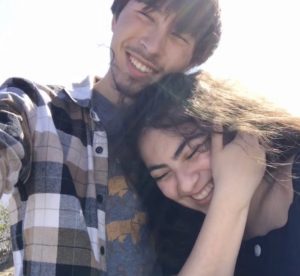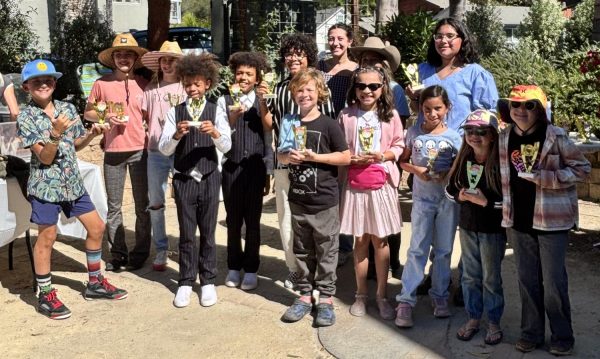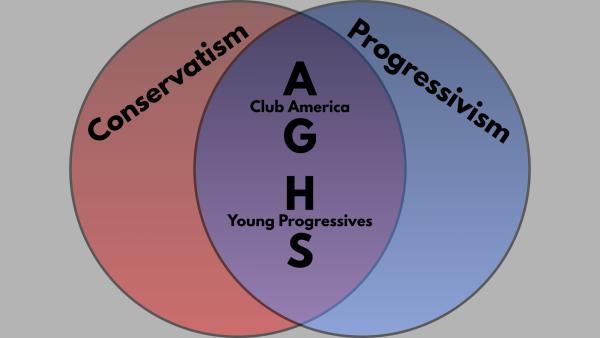Fulfillment throughout a lifetime
A look into how views on fulfillment and joy change as we go through life.
Joy flows much like a body of water, coming in waves or flowing steadily for some time, yet this emotion can leave as quickly as it came. Every individual is unique, and what people enjoy tends to change over a lifetime. A child’s mind, relatively simple in comparison to that of a hormone-filled teenager’s mind, is far different from an adult’s fully developed brain. As humans get older, the focus of what brings them fulfillment changes with age.

9-year-old Maxwell Shofner, eyes bright with excitement to be doing his first interview, feels that joy comes from the physical embrace of loved ones.
“Hugs from my parents [make me the happiest] because, well they’re hugs,” Shofner explained excitedly.
Joy does not just come from hugs though, it comes from puppies as well.
“The dogs at [my daycare] are very cute, they’re just puppies, and they’re huge! They’re great for cuddles.”

Bright-eyed children turn into teens; teenagers navigating their way through high school and the complexities of entering adulthood.
18-year-old Gabe Matsuura sees fulfillment in a more complex light than young Max Shofner. For Matsuura, joy comes from being able to balance the activities in his everyday life.
“The ebb and flow of balancing work, be that school work [or] working [at Chick-fil-A], mixed with making sure [I] fit things I enjoy in where I can and making sure there is always a goal [to accomplish] makes me feel balanced,” Matsuura said.

As a child grows into a teenager, their views of joy tend to change as they move from the concrete operational stage of life to the formal operational stage.
“One of the things that makes me the happiest is surprising my girlfriend with a coffee from Starbucks. Seeing her face light up brings me so much joy,” Matsuura explained.
While the world can overwhelm a teenager’s still-developing mind, they can appreciate the small things in life.
For 57-year-old Sandy Regoli, the small things are what bring her the most joy.
“I prefer to have a single cocktail beer at the end of the day, I [also] like to sit outside and feel the warm breeze. Another thing I enjoy is sitting down watching a movie with my daughter,” said Regoli.
Although Regoli enjoys a drink at the end of a long workday, her priorities are far different than that of 9-year-old Shofner and 18-year-old Matsuura.
“I couldn’t live without my son and daughter, I’d be depressed. I need both of them. I can’t live without my Ohana,” she said.
Shofner feels quite differently though, all he needs to be happy are some friends and an entire water park.
“If I was stranded on an island all alone I’d bring the Ravine Waterpark with me! There’s food and water there, I could survive. I could survive on the island there and be happy, and my friends could be in the waterpark with me.”
Life consists of the insights we gain throughout our lifetime. Each person’s experience feeds their insights. This is why, the experiences of those who have lived should not be trivialized.
One of the most important lessons Regoli has lived by to this day is to realize that “it’s all good.”
“Tell yourself it’s all good. Remind yourself that it’s all good. Even in the hard times,” Regoli said.
If believing that “it’s all good” does not work the first time around though, maybe listening to youth will serve you well. Shofner suggests that people should “try my mom’s homemade bread, or my mom’s steak, really people should just try my mom’s cooking to make everything better.”

Tatyana is a senior at AGHS and is the Co-Editor-in-Chief of the Eagle Times newspaper. She dedicates most of her time to mediation, yoga, and accidentally...






